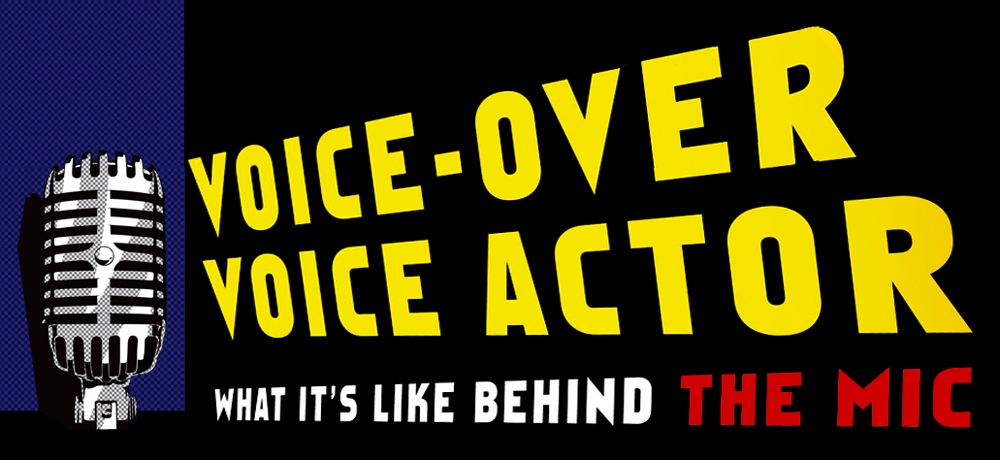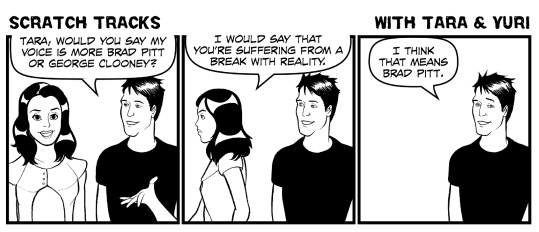Voice Over Artists: Self-Promotion 101
 Self-promotion can be hard for some people. It takes work. And how many times did your grandma say, “People don’t want to hear you talk about yourself!” We’re taught that tooting our own horn is prideful and unattractive. But in this business, you have to find as many ways as possible to let people know how great you are and why they should be hiring you. And as we said before, promoting you is not part of your agent’s job. What if you don’t even have an agent? What can you do on your own? Well, a lot, actually.
Self-promotion can be hard for some people. It takes work. And how many times did your grandma say, “People don’t want to hear you talk about yourself!” We’re taught that tooting our own horn is prideful and unattractive. But in this business, you have to find as many ways as possible to let people know how great you are and why they should be hiring you. And as we said before, promoting you is not part of your agent’s job. What if you don’t even have an agent? What can you do on your own? Well, a lot, actually.
We’ll talk about some of the things you can do to promote yourself, but there are plenty more ideas beyond what we’ll go into. The more creative you get, the more effective your promotion will be. So put your fun-hat on and get cranking on some ideas.
Once you’ve determined what your sound is and decided where you think you might fit best in the VO market, you’re done with the hard part. Use this info to promote yourself and move in the direction you want.
Tip: Don’t worry if you don’t have an agent yet: you’ll always be your own best promoter. So start selling yourself now.
What to Do with Your Voice Over Demo
So what do you do with your masterpiece? The demo you spent all that love, time, energy, and dough on? You get it out there and get it working for you. It’s time to try to get a return on your investment.
Do a mailing to your target agents or managers, and don’t stop there. Do a little research, and target production studios, ad agencies, producers, casting agents, and directors who work on the kind of projects that you’d like to be working on. Once again, feel free to check out the Resources section of this book to get more direction about where you can start your search.
Post your reel on line; it’s easy these days. Make it accessible on Facebook, MySpace, LinkedIn, Twitter, and any other online social networking site, so that if someone wants to hear it, they can find it easily. Build your own Web site and host your demo there. The more online places your demo is featured and associated with your name, the easier it is for somebody to find it by using a search engine like Google.
Use whatever method you can think of to get your demo into the hands of the people who could hire you (or at least into the hands of someone who can introduce you to some of those people). There is no right or wrong way to do this, but there is a fine line between catchy and gimmicky – much like the line between aggressively pursuing and stalking. So do be respectful about putting yourself in people’s faces.
We’ve found that the difference between catchy and gimmicky can be crystallized in this comparison: a personalized card with a funny note included with your demo is fine; a glitter-filled envelope that explodes all over an agent’s desk when he or she opens it will get you remembered, but for all the wrong reasons …
A short note on packaging: except for those times when you simply e-mail your demo as an MP3, you’ll need some sort of packaging for it. You’ll want it to look nice and professional. Feel free to use your creativity in putting your package together, but one word of warning: while it may seem to be a good idea to put a picture of you somewhere on that CD case, listen when we say that there are better options. Putting your face on your demo automatically typecasts you in the eyes of the person looking at it. As a voice actor you want a potential employer to think that you can be anything and anyone.
If agents have a specific image of you in their heads, it’ll be harder for them to consider you as anything other than what you look like. We’ve been telling you how important it is to use your imagination, right? Well, let the agents use their imaginations this time.
+++++++++++++++++++++++++++++++++++++++++++++++++++++++++++++++++++
Check out our VoiceOverVoiceActor website for more tips and exercises. We post daily VO tips on Facebook and Twitter, and our book, Voice Over Voice Actor: What it’s like behind the mic includes a wealth of exercises to build your voice and keep it ready for a successful voice over career!



 This is something that can’t be said enough: you must know your own voice. No matter how long you’ve been living with your voice and how well you think you know it, you’re about to start doing things with it that you’ve probably never done before. So take the time to get friendly with your beautiful and unique pipes. You’ll learn to recognize your limits and your strengths.
This is something that can’t be said enough: you must know your own voice. No matter how long you’ve been living with your voice and how well you think you know it, you’re about to start doing things with it that you’ve probably never done before. So take the time to get friendly with your beautiful and unique pipes. You’ll learn to recognize your limits and your strengths.

 Thanks to Jason Bermingham of Sound on Sound:
Thanks to Jason Bermingham of Sound on Sound:

